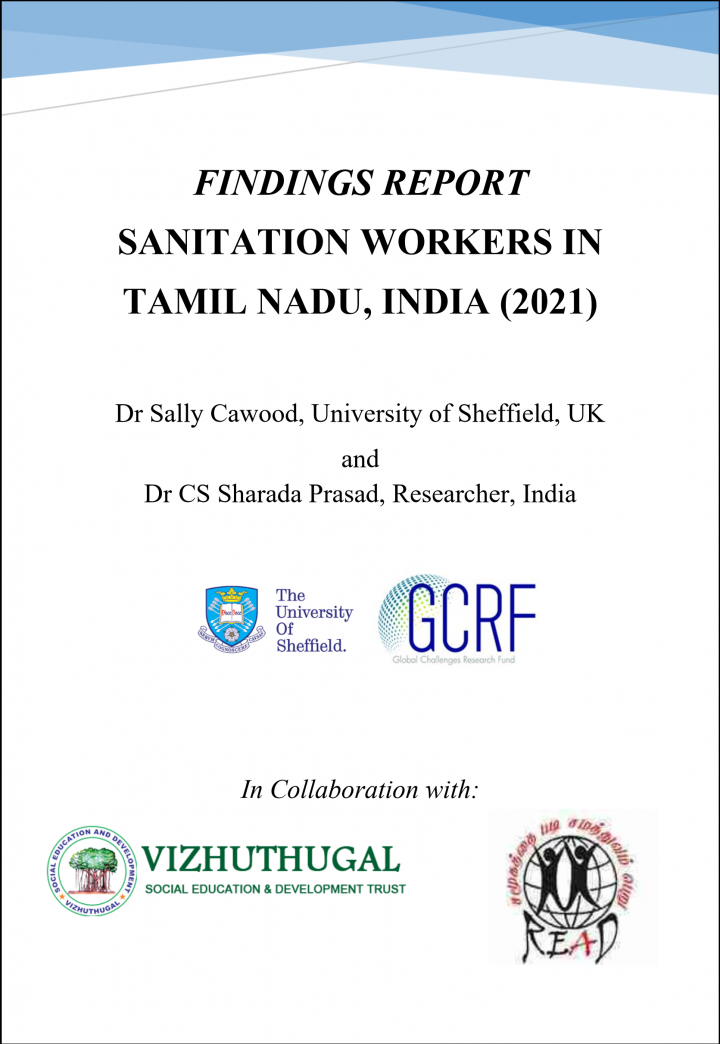Findings Report Sanitation Workers in Tamil Nadu, India Cawood, S., Prasad, CS. S. (2021)
The overall aim of the project was to identify the ways in which sanitation workers can improve and/or move out of hazardous and degrading forms of sanitation work – specifically pit latrine, septic tank, drain and sewer cleaning and emptying – in urban areas (small towns and large cities). The dire working conditions of sanitation workers – men, women and children engaged in the handling and management of faecal matter – are gaining increasing attention in research, policy and practice. The challenges facing workers such as poor health and safety; low, irregular pay and limited access to finance, social stigma and discrimination, are increasingly well documented, leading to calls for the promotion of decent work, skill development and rehabilitation across the sector (WHO 2018; World Bank 2019; Zaqout et al 2020). Despite progress, hazardous and degrading forms of sanitation work, such as manual scavenging, persist in many countries, including India, where it remains largely unseen and unheard by planners, politicians and wider society (Prasad and Ray 2019). Within this setting, greater understanding is needed of the intersections between gender, caste, religion and livelihoods in shaping pathways into and out of degrading forms of sanitation work. The project will develop recommendations on pathways to exit degrading manual sanitation work, in collaboration with local partner organisations, to be shared via global forums, and regionally across South Asia, where sanitation work persists as a caste-based occupation.
Bibliographic information
Cawood, S., Prasad, CS. S. (2021). Findings Report Sanitation Workers in Tamil Nadu, India The University of Sheffield, GCRF
Filter / Tags
Urban (entire city)Research publicationsEnglishImport to Sanitation Workers PlatformHealth & SafetyHealth & Safety
Downloads
Findings Report Sanitation Workers in Tamil Nadu, India
Type: application/pdf
Size: 1.36 MB

